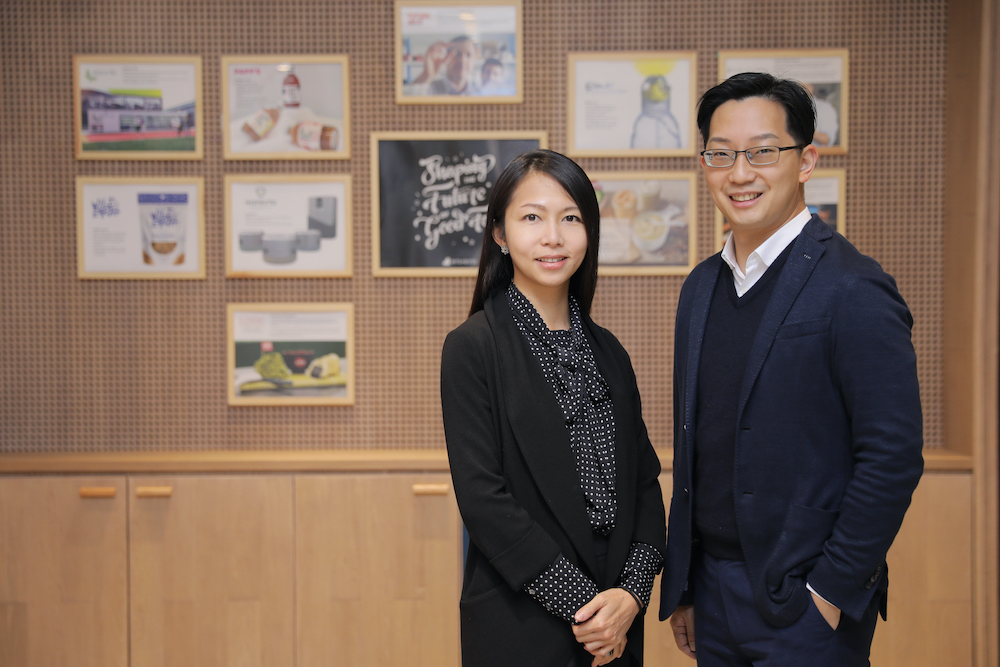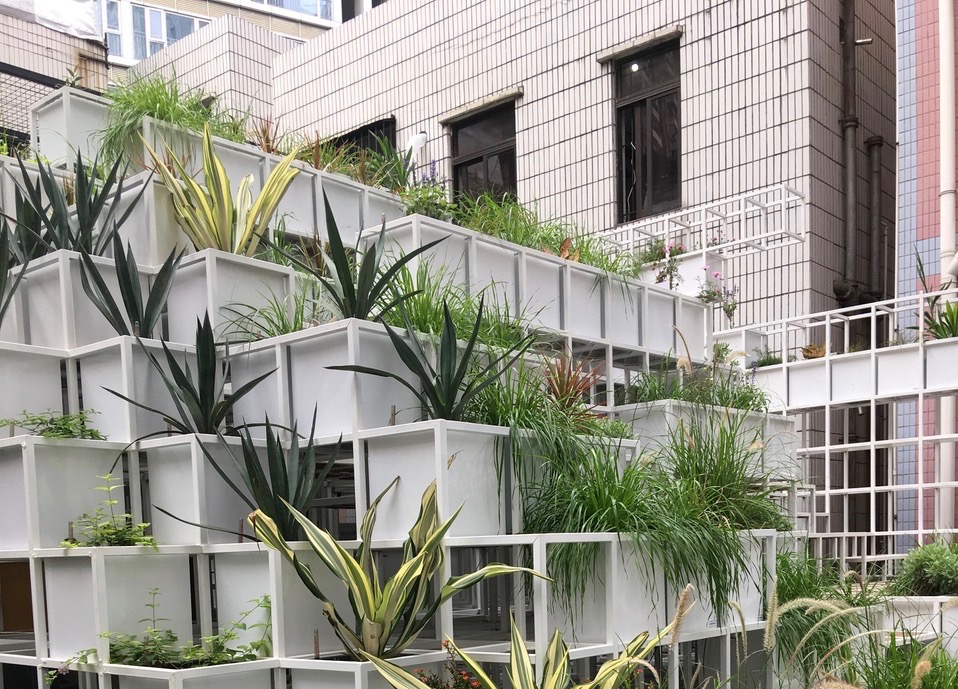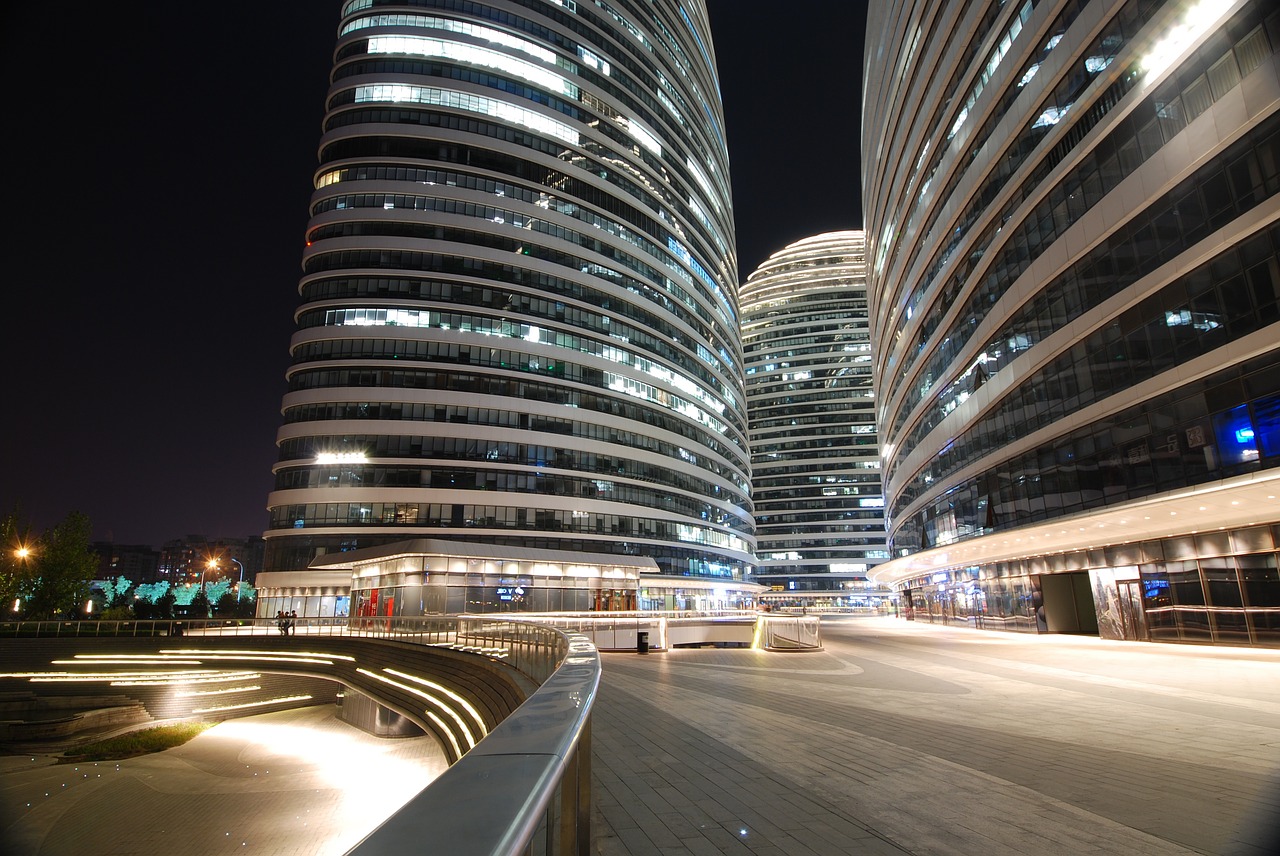ImpactAlpha, July 7 – Chinese investors are moving capital into cleantech and low carbon funds. Driving the activity: President Xi Jinping’s pledge last year to peak China’s carbon emissions prior to 2030 and reach carbon neutrality by 2060 through energy reforms, renewables policies and a nationwide carbon emissions trading system. A secondary driver is a more socially conscious younger generation, signaling opportunity for a broader set of impact investments.
The trillions of dollars that are expected to flow to clean and green sectors has private equity and venture capital firms moving into the backyard of Asia Green Fund, one of China’s earliest private equity funds with a focus on accelerating China’s transition to a low-carbon economy. “We actually need more people,” Bo Bai, the fund’s chairman and founder, says in a Q&A. “If we have more people working on [carbon neutrality], we have a bigger ecosystem.”
Bai and other Chinese investors are key to accelerating the low-carbon transition in the world’s largest emitter of greenhouse gases and, by extension, global progress on climate action in advance of the COP26 climate conference in Glasgow in November. Bai’s firm manages the half-billion dollar U.S.-China Green Fund, which opens channels into Chinese markets for U.S. and European cleantech ventures (see, “U.S.-China Green Fund kicks off next stage of investments in China’s low-carbon transformation”). In March, Asia Green Fund launched the yuan-denominated Carbon Neutrality New Materials Fund with a target of more than $155 million.
Bai is excited about the next generation of investors, whom he says are adopting even stronger impact-driven investment strategies. On Bai’s radar: Indonesia, Malaysia and the Philippines. Southeast Asian markets are driving demand for clean products and technology from the U.S., Europe and China – and the next wave of cleantech investment.
ImpactAlpha: What is the current state of impact investing among investors in China? How much of it is really being driven by personal goals for creating an impactful and clean portfolio, and how much is riding on the coattails of government policy?
Bo Bai: Five years ago, when we started our whole effort, it was not really appreciated by many people. Not many investors were doing that, and it took a lot of effort for us to convince limited partners that this is the right thing to do. Some of them even treated this as part of their ESG mandate [laughing]. We had to create a very professional team and that was critical to gain people’s confidence. Now, I think since last September [when Xi Jinping made the carbon neutrality pledge] and particularly since this February, this has suddenly become super-hot. ESG investing, impact investing, everybody is very excited to get into this, which I think is great. Historically, this area has been too under-penetrated.
I think people are looking at this from two fronts. One prong is that many sectors are going to benefit from [China’s] carbon neutrality policy, and hence, they become quite interesting investment areas. That’s why you see a lot of our peers moving into those spaces. As for Asia Green Fund, we are very much interested in industrials and business services. On industrials, we are particularly focused on new materials and new technologies, and on business services, we are looking at technology driven improvements in efficiency and environmental protection at the same time. Both of these two areas are going through the same upgrading and efficiency improving process, which are creating huge impact investment opportunities for private equity firms. In some of these areas where we haven’t historically seen many lead players, now there is a bit more competition on deals. But on the other it is actually good to see people getting excited about these areas.
Second is that we are starting to see people say, hey maybe we can do more dedicated efforts, dedicated funds, so that’s why you’re starting to see private equity firms and VC firms jump out and try to do carbon neutrality funds and a fair amount of them are now trying to announce carbon neutrality funds. Are we worried about all the competition from this, sure, we’re in the fund business and we’re trying to make the best investment and environmental returns for our LPs. But at the same time, this is a huge universe, you know there’s like 10s of trillions of dollars needed for this, we actually need more people. If we have more people working on that we have a bigger ecosystem.
I think the landscape is getting very exciting. Many years ago I went through the US clean tech boom and bust and now when I look at what China is doing … I think China is pretty lucky in this area. The clean tech bust made many institutional investors in the US very cautious and negative against clean tech, but for China, we are much luckier in this area.
ImpactAlpha: Do you see many individuals or family office investors in China looking to put all or more of their investments into a portfolio that is as green or socially responsible as possible?
Bai: Yes and no. We see increasing percentages of family offices that are very much more socially conscious, and this has a few fundamental drivers behind it. First are millennials. The millennial generation has grown up with all the [climate] challenges and issues and they have become much more socially conscious and as some of them are taking the helm of the family business and are just trying to manage the money of their ancestors, it becomes much more important for them. In Asia, the second generation and third generation have not gone through what the first generation did that accumulated the wealth, but they are thinking more about what they are going to do with the wealth. And many of these guys were educated at top notch schools in the US and Europe and came back to Asia and are now taking over the family wealth and they’re much more socially conscious, so that’s one big driver.
The second biggest driver is always the large, large issues, things like Covid-19 … the silver lining of all that is it has forced people to be much more serious, more serious about our health, our social issues, our behaviors, our damage to the environment, and that you pay for what you do. The appreciation of global warming concerns is becoming greater, people are more receptive, there’s been time to ponder over and reflect on these issues. So yes, an increasing percentage of family offices are quite keen on this. It is very rare to see a family office say, oh, I’m 100 percent in, it is rare to see someone say they’re going to do 100 percent socially responsible investment. People are treating it as a portfolio approach, tying as much as possible to good and do well at the same time.
We hope that there are more and more funds like us because, historically, we’re not a very big asset class, and particularly we’re talking about generating market returns and quantified environmental returns and ESG returns, and still trying to shoot for 20% annual investment returns, and we’ve actually achieved that so far. The asset class isn’t that big and that’s why you don’t have much exposure to this area and many, many people, the majority of them, are treating it as a portfolio approach.
ImpactAlpha: You’re particularly focused on green and clean tech, but do you see other areas developing that people may be missing out on that could be great opportunities for impact and return? Child care, elderly care, family care and these kinds of things would likely be something due to the demographic issues we see developing in China, right?
Bai: For sure. Look, ESG, and the two big components of that, which are environmental impact, which we are focused on, and social impact. That’s also super critical. With [China’s] three-child policy coming up, there will be more and more efforts in that area, but also I would say not only the whole demographic situation, but also gender equality. So equality issues, and maybe rural-urban equality, these are important as well. We’ve seen more of those issues. In addition to environmental impact, we have been quite focused on social impact for underprivileged people. For example, when we see examples for helping migrant workers in cities with their housing situation and opportunities where we can combine social and green, that’s fantastic.
We used to invest in a company that manages apartments for blue collar workers. We also invested in a company that’s trying to build the largest e-commerce platform in [China’s] rural market. They put in a lot of effort and today its services have covered more than 21 provinces in China and it is still growing at a very fast pace. This is also a good platform for green products, green fertilizer, green equipment for the countryside. It’s actually a very profitable investment so far.
ImpactAlpha: How much interest is there from investors in China looking outside into Southeast Asia, countries in the Belt and Road Initiative? Considering the infrastructure needs in these regions, and the needs for cleaner energy there, this should be a natural fit, right?
Bai: Tremendous. I’m actually overwhelmed by some of the Southeast Asia demand recently. Look, in China, there is the Belt and Road Green Alliance, this is initiated by the Ministry of Ecology and Environment, and we’ve actually worked quite a bit with them. This is sort of similar to the concept where US and European technologies meet China’s huge market demand, driving cleantech investment. Now people are looking to Indonesia, and Malaysia and the Philippines, and they’re all looking for the same thing, whether it is US technology, China products, European technology, and trying to address environmental issues and maybe learning from the US or from China on successful business models for financial services or for some specific business. There is tremendous interest in this area.
ImpactAlpha: How much should impact investors looking to put money into things like green bonds here in China be wary of the lack of transparency about where the money is actually going?
Bai: I have to admit that I was actually having this same conversation this morning with Ma Jun this morning. The whole question of green bonds and green loans has really prospered in China over the past five years. Big credit to Dr. Ma and with tremendous support from the People’s Bank of China. On the private equity side, the growth has been much slower than we would hope and with the recent push we hope more would do that. We work a lot with green bond providers, and then for private equity, we own those companies, either as a minority or majority shareholder, and we certainly encourage them to work with the banks, and the banks are very excited about green bonds as well. Internationally, more people are used to green bonds and green loans, and particularly international financial institutions, but in regards to green LPs, from our perspective, that’s still in the process.











